
Work as a lifeline: how IOM’s psychosocial support programmes help ukrainians thrive in the workplace
09/10/2024
For nearly three years now, people in Ukraine have been facing the challenges of war, while trying to carry on with their lives, cope with stress and find new meaning in a difficult reality. Despite daily hardships, work and volunteering have become a lifeline for many, offering a way to keep busy and support oneself. This year’s World Mental Health Day focuses on supporting mental health in the workplace, recognizing that work and the meaningful contribution to society is an important element of a person’s life. At the same time, strong mental wellbeing requires the capacity to cope with stressors and realize one’s own potential.
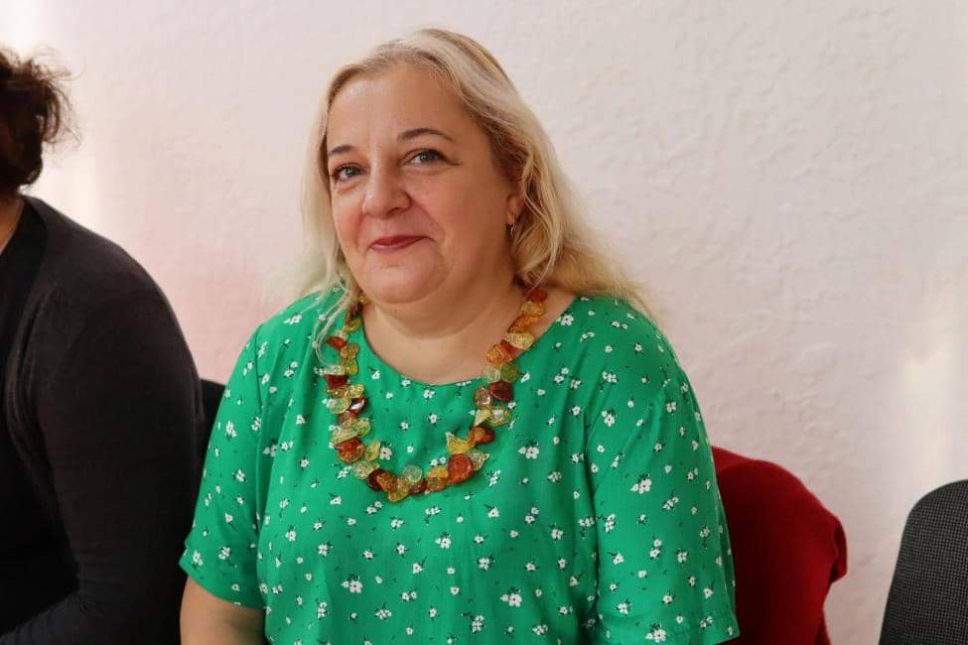
“My work helps me a lot, keeps me from feeling stuck and shutting down. It encourages me to see that I am not alone in my problems. My colleagues and students are very supportive,” says art teacher Ninel at one of IOM’s psychosocial life skills development sessions in Vinnytsia region.
The war has significantly impacted Ninel’s life. Her son, a military officer, has been held captive by the Russian Federation for the past two years. She finds a sense of perseverance and emotional strength in working with her students and in supporting other women in her community who are also waiting for their loved ones to return from captivity.
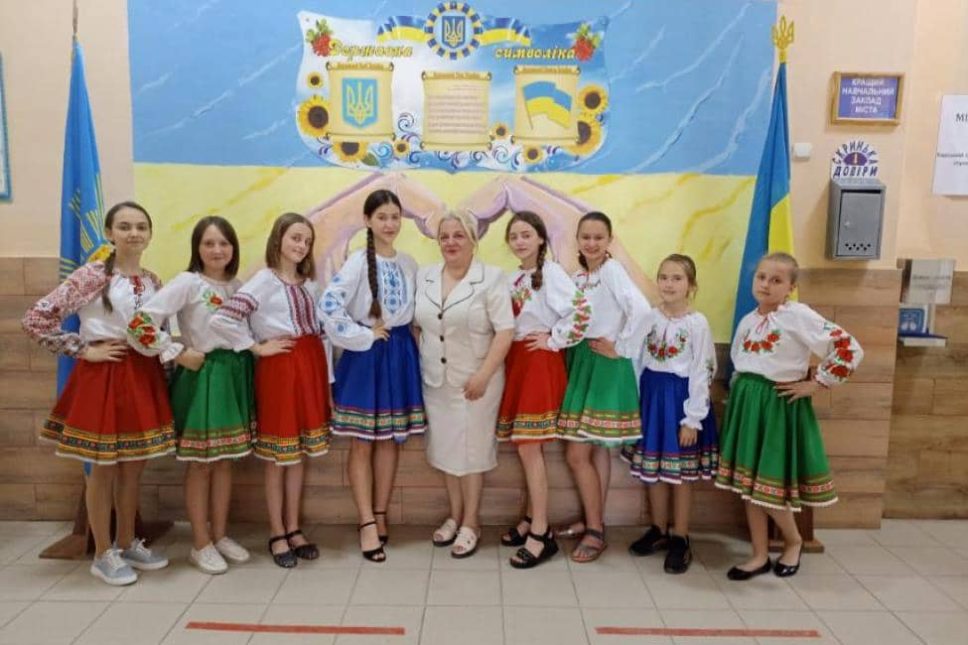
While Ninel finds peace and support through work, for Liudmyla, another participant in the IOM life skills development sessions, working with people is a constant source of stress. Liudmyla is a social worker in the town of Bar and helps families in difficult life circumstances and children deprived of parental care.
“It’s psychologically challenging to work with parents who abandon their children or neglect their upbringing. It is equally difficult to work with orphans who need a lot of love and attention,” says Liudmyla. Regardless, Liudmyla carries on.
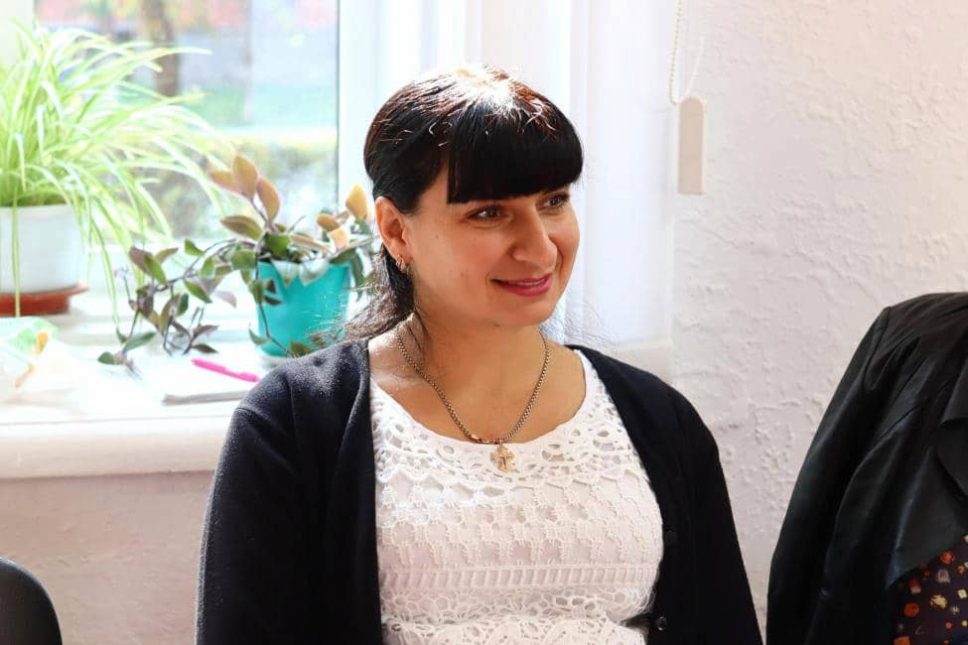
Since the beginning of Russia’s full-scale invasion of Ukraine, over 20,000 displaced people have passed through the Bar community in Vinnytsia region. Several families stayed and had since received support from local social protection services. This has meant that Liudmyla’s workload increased significantly, also because had become the only remaining team member in her organization. Her other colleagues resigned.
Regardless of these challenges, work remained important for Liudmyla. Reflecting on the past two years, she shares: “My children have barely seen me. I have missed family holidays, worked late because I couldn’t abandon the people who needed my help. It has been hard. On the other hand, I understand that if I stay at home without work, I won’t be able to recover at all on my own.”
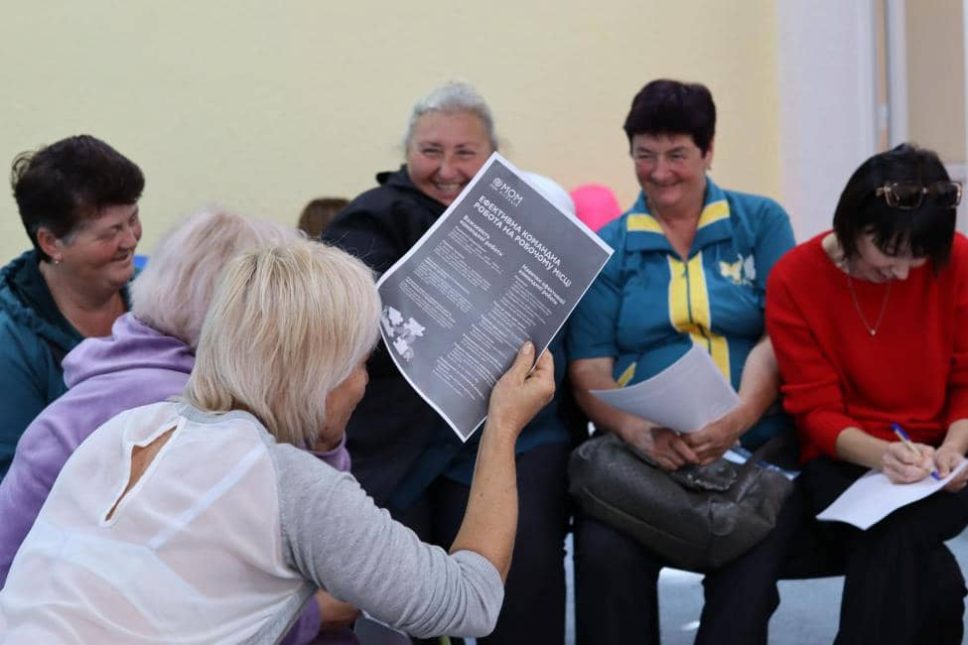
Over the past months, the situation at Liudmyla’s workplace has become better. Some of her colleagues returned to work and new employees were hired. However, still raising her sons on her own, Liudmyla is trying to balance her life and find harmony between work and family. “Communication with colleagues is an encouragement and a resource for me. When you have to go somewhere every morning, you have an incentive to dress better, to smile even if you don’t want to, and to get yourself in order,” says Liudmyla.

Through the life skills development sessions with IOM’s psychosocial support specialists, Liudmyla learnt how to separate work from home, dedicating her time at home to family and rest. This approach has helped her feel better, be effective and take care of herself and her family.
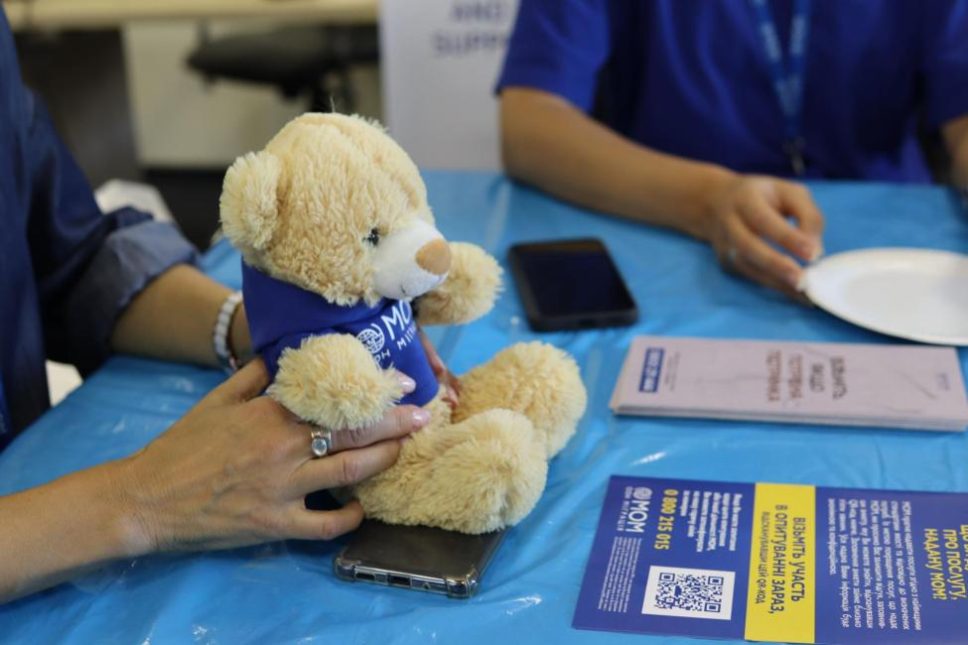
Over the past months, IOM provided nearly 200 life skills development services to support persons facing challenges at their workplaces in Vinnytsia region. Similar services were also provided in Mykolaiv and Odesa regions. The IOM psychosocial life skills development sessions aim to increase participants’ adaptability and their resilience in the workplace and daily life. Participants, who include internally displaced and war-affected people, work with IOM psychosocial support professionals on topics like maintaining healthy work environments, building confidence, positive thinking, adapting to change and other related topics.
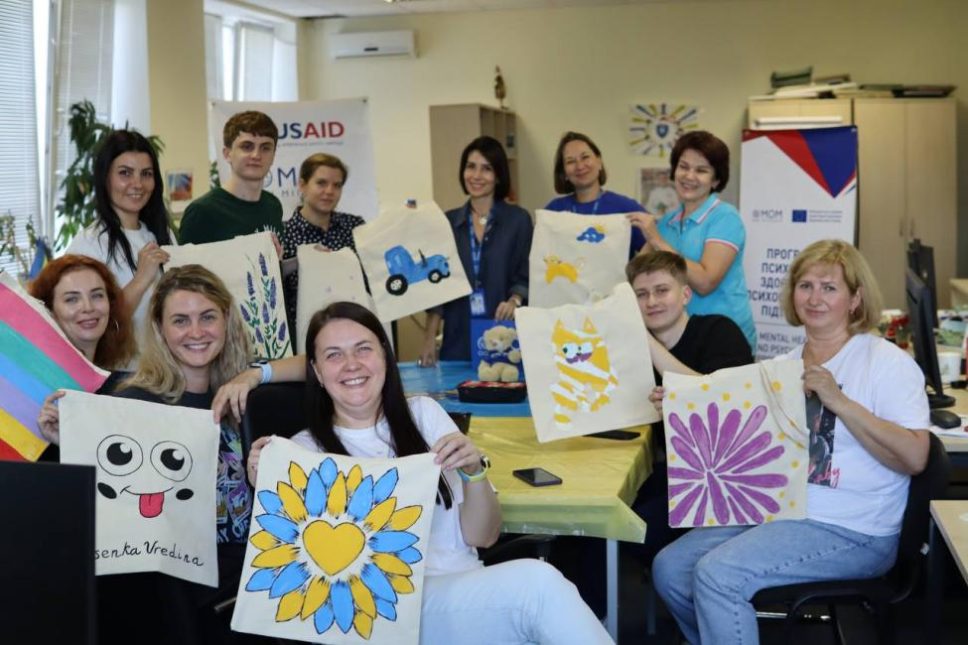
In an effort to strengthen emotional health at the working place, in Dnipropetrovsk region, IOM provided a series of psychosocial support sessions, with integrated life skills building, for the staff of the National Health Service of Ukraine. This was done in coordination with the service’s deputy director, Nataliia Shulika, who experienced first-hand the risks of professional burnout.
“For the past three years, we’ve been on the verge of burnout, ensuring access to free medical services and protecting patients’ rights during the ongoing war. It’s challenging to change a long-established system, and even the most motivated staff can feel defeated.”
Since the beginning of the full-scale invasion, Nataliia noticed increasing tensions among her team, making working together challenging. This led her to asking IOM for support.
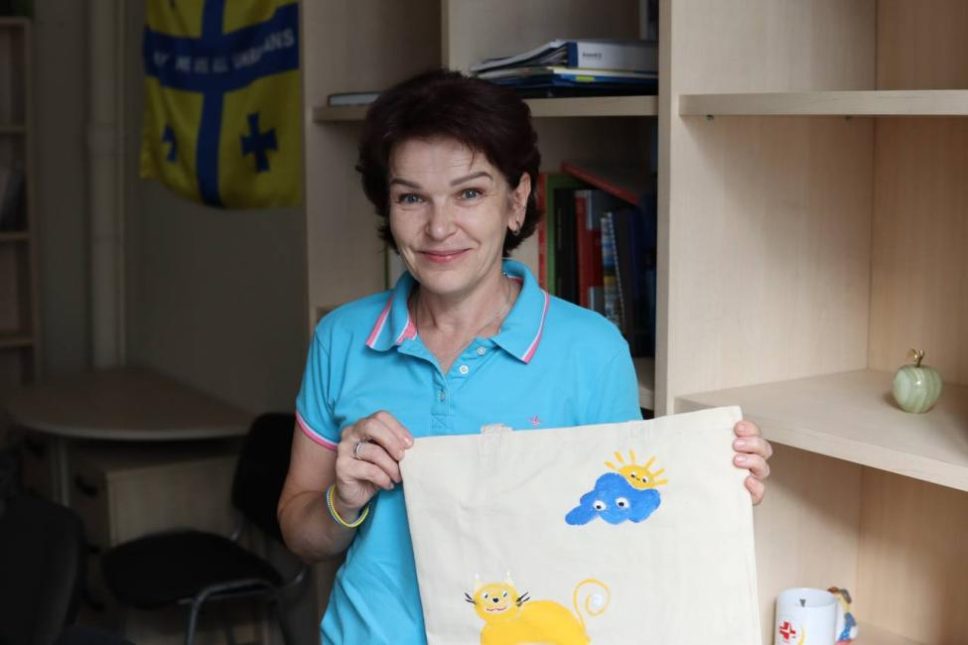
In response, IOM offered a series of psychosocial support sessions to the National Health Service team, including group sessions, trainings and art-based activities. These sessions aimed at offering psychological relief, fostering a friendly atmosphere among the coworkers.
Nataliia noted that after each session, the team’s tensions eased: “Spending time together outside of work also helped us see each other as more than just colleagues, we began to learn more about each other, taking a sincere interest in each other and we are happy with our results.”

IOM’s psychosocial support and life skills development sessions were made possible with funding from the U.S. Agency for International Development’s Bureau of Humanitarian Assistance and the European Union.
Stories
-
Katarina Mathernova: If Ukraine had a human face and a human spirit, it would be 10-year-old Roman Oleksiv
-
A regional mission to drive social entrepreneurship: the story of Ksenia Kosukha
-
EU restores safe water supply for 100,000 Ukrainians affected by war
-
Promoting IT during the war: Lviv IT cluster and how EU4Digital helps
-
Frontline digitalisation: Kharkiv IT Cluster collaborations
-
How EU4Youth is driving opportunity and success among young Ukrainians